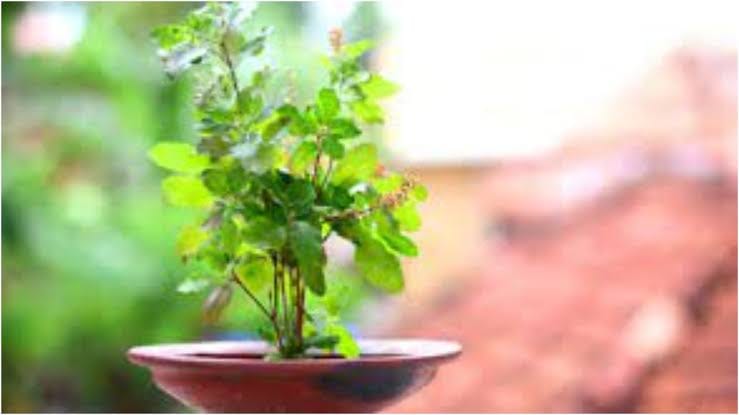The Spiritual Benefits of Tulsi Leaves in Worship

The Significance of Tulsi Leaves in Worship
Tulsi leaves have been an integral part of Hindu worship for centuries, holding immense spiritual significance and connecting devotees with divine energy. These sacred leaves are believed to possess extraordinary powers, enhancing prosperity, purity, and protection when used in rituals and poojas.
Connecting with Divine Energy
Tulsi leaves are considered a manifestation of the divine, embodying the essence of the universe. When offered to the deity during worship, they facilitate a profound connection between the devotee and the divine, allowing for the transfer of spiritual energy and blessings.
Enhancing Prosperity and Purity
The sacred leaves are believed to attract positive vibrations, ushering in prosperity and good fortune. They are also thought to purify the mind, body, and spirit, cleansing the devotee of impurities and negative energies. By incorporating Tulsi leaves into worship, devotees can experience a profound sense of clarity and inner peace.
Protection and Spiritual Growth
Tulsi leaves are believed to offer protection from negative forces and evil spirits, creating a shield of divine light around the devotee. By using these sacred leaves in worship, devotees can cultivate spiritual growth, advancing on their journey towards self-realization and enlightenment.
Rituals and Practices for Harnessing the Power of Tulsi
Tulsi worship is an integral part of Hindu spirituality, and when combined with specific rituals and practices, it can unlock numerous spiritual benefits. In this section, we will delve into the essential rituals and practices that enhance the power of Tulsi worship.
Consecrating the Ambiance
Lighting a diya with desi ghee near the Tulsi plant creates a serene ambiance, inviting positivity and divinity. Offering water to the plant is also crucial, as it symbolizes respect and gratitude. Chanting mantras, such as the Tulsi Gayatri Mantra, while performing these rituals amplifies their effectiveness.
Best Practices for Effective Worship
To ensure the spiritual benefits of Tulsi worship are fully realized, it is vital to follow certain guidelines. Placing the Tulsi plant in a spot with ample sunlight allows it to absorb the divine energy of the sun. Dirty hands should never touch the plant, as it may transmit negative energy. Additionally, it is essential to avoid plucking Tulsi leaves on Ekadashi, as this sacred day is reserved for worship and contemplation.
The Sacred Cycle of Devotion and Blessings
Unlocking the Spiritual Significance of Tulsi Leaves in Worship
The Tulsi mantra, chanting rules, daily rituals, and watering the Tulsi plant form a sacred cycle of devotion and blessings. This cycle connects devotees with the divine energy embodied by Tulsi, promoting spiritual growth, purity, and protection.
The Tulsi Mantra: A Powerful Invocation
Chanting the Tulsi mantra, "Tulsi Vivah Katha" or "Tulsi Gayatri Mantra", is an essential part of the sacred cycle. This invocation awakens the divine energy within the Tulsi plant, allowing devotees to connect with its spiritual properties.
Chanting Rules: A Guide to Reverent Invocation
Devotees must follow specific chanting rules to harness the full spiritual potential of the Tulsi mantra. These rules include chanting at dawn and dusk, facing east or north, and using a Rudraksha or Tulsi mala.
Daily Rituals: Nurturing the Sacred Cycle
Daily rituals, such as offering water, milk, or ghee to the Tulsi plant, maintain the sacred cycle's continuity. These offerings symbolize devotion, gratitude, and the nourishment of spiritual growth.
Watering the Tulsi Plant: A Symbol of Devotion
Watering the Tulsi plant is an act of devotion, signifying the devotee's commitment to nurturing their spiritual growth. This simple yet profound act connects the devotee with the divine energy of Tulsi.
Embracing the Divine Energy of Tulsi
Unlocking Spiritual Growth, Purity, and Protection
Tulsi worship has been an integral part of Hindu devotion for centuries, offering a profound path to spiritual growth, purity, and protection. The sacred Tulsi plant, revered as a symbol of divine love and care, holds immense significance in Hindu mythology and spiritual practices.
A Bridge to Spiritual Connection
By incorporating Tulsi leaves into worship, devotees can enhance their spiritual connection and seek divine blessings. The simple act of offering Tulsi leaves to the deity is believed to foster a deeper sense of devotion, purity, and spiritual growth.
Purification and Protection
Tulsi worship is also associated with purification and protection. The sacred leaves are believed to ward off negative energies, bringing peace and prosperity to the devotee's life. By embracing Tulsi worship, individuals can invite divine protection and guidance, leading to a more harmonious and balanced life.
A Sacred Offering
The act of offering Tulsi leaves to the deity is a sacred ritual, symbolizing the devotee's surrender and devotion. As the leaves are offered, the devotee's heart is filled with love, gratitude, and a deep sense of connection to the divine.











Comments ()